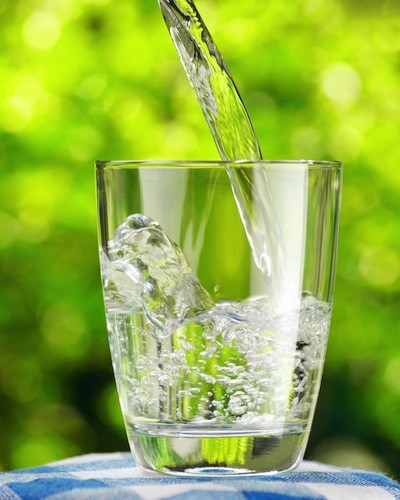What Is BPA?
- Get link
- X
- Other Apps
What Is BPA, Anyway?
BY SARA COURTER
 You know you should avoid it, you've been told it's in plastic and the lining of canned foods .... but what is BPA, and why, exactly do we want to avoid it?
You know you should avoid it, you've been told it's in plastic and the lining of canned foods .... but what is BPA, and why, exactly do we want to avoid it?
BPA is Bisphenol A, a chemical used abundantly in plastics, packaging, and epoxy resins as a hardener. It's used in many plastics such as Ziploc bags, water bottles, baby bottles, and Tupperware containers. It also lines canned food, is used in some dental sealants, and is found in the coating of some metal equipment, including medical tools.
The problem is that BPA doesn't stay where it's put. It leeches into our food, drinks and bodies, contaminating our precious little temple with this chemical.
BPA is said to cause cancer, increase risk of heart related disease, disrupt hormones, and prove toxic and harmful to brain development in infants and children.
Many canned food manufacturers are now offering cans with "BPA free lining," water bottles are made BPA free and Ziploc bags are being produced without BPA. Being mindful of your exposure to these chemicals will not only reduce our toxic load, it will also allow you to vote with your dollar.
In refusing to buy products containing BPA, you protect your body and make a statement by letting the chemical-laden (albeit more affordable) junk sit on the shelf. By resolving to do this, and banding together, it's possible to improve the norm.
Some tips to reduce your exposure to BPA:
1. Avoid the heat.
Make sure not to microwave in plastic or leave your plastic water bottles in full sunlight, this is an invitation for BPA to leech into your liquid and food over time.
2. Go glass.
Invest in some glassware to store your food in and get yourself a stainless steel water bottle.
3. Look for "BPA free" labels, because even bottle lids can have BPA coating.
The National Institute of Health Sciences also suggests using the tactic of reading recycle codes in an effort to avoid BPA, saying, "Some, but not all, plastics that are marked with recycle codes 3 or 7 [on the bottom of the container] may be made with BPA."
If you need any more reason to avoid BPA, NIH lists some great websites and sources. We must be our own educators and continue to forge ahead as pioneers of the wellness revolution.
We must create our own future…I envision a future of longevity, detoxification and vitality. Are you with me?
Photo Credit: Shutterstock.com
- Get link
- X
- Other Apps
Comments
Post a Comment